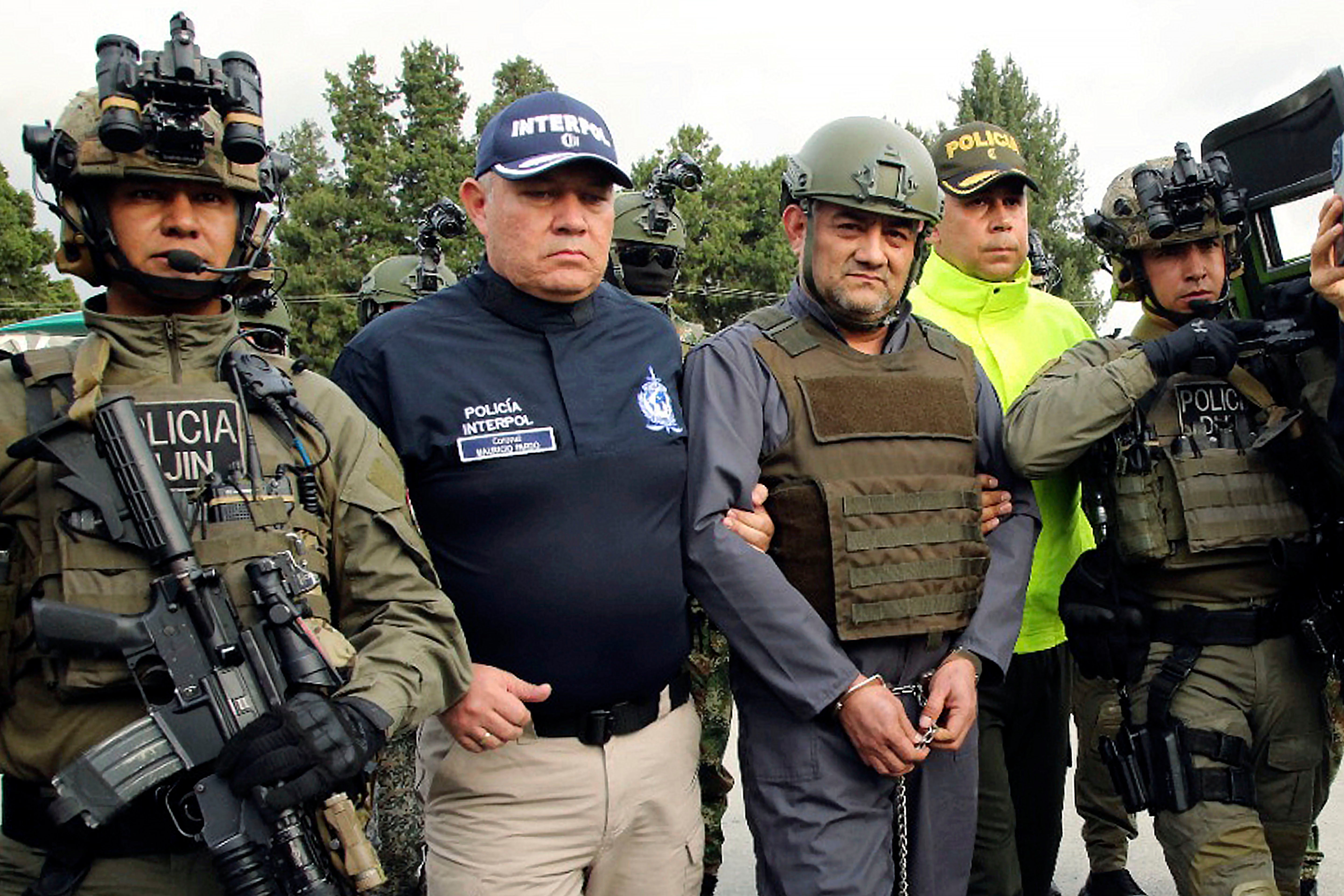Colombian drug lord described as most violent since Pablo Escobar is jailed for 45 years in New York
District judge chides kingpin’s lawyers for bringing up his tough childhood by invoking her own experiences of growing up in the South Bronx

One of the world’s most dangerous drug traffickers — accused of being second only to Pablo Escobar, in his capacity for violence – has been sentenced to 45 years in prison at Brooklyn federal court in New York as Colombian government representatives watched from the gallery.
Dairo Antonio Úsuga David, known as Otoniel, was jailed on Tuesday for charges of conspiracy to ship cocaine into the US by land and sea.
As part of his plea deal, he agreed to forfeit $216m.
Úsuga, 51, was at the helm of the drug cartel Clan de Golfo or Gulf Clan, which also operates as a paramilitary group, for over two decades. The organization uses extreme violence — including murder — to control parts of northern Colombia and are said to have law enforcement in their pocket.
Francisco J Navarro, one of the prosecutors, called Úsuga “the supreme leader” of the Gulf Clan and said his rule was violent and “without mercy.” Other prosecutors described him as “the most violent and significant” drug lord since Escobar, whose Medellin clan terrorised Colombia in the 1980s and 1990s.
Prosecutors also recollected how the criminal kingpin ordered a stay home or die strike by local workers when his brother was killed by police officers. He also offered a reward for the lives of his brother’s killers.
They added that he has caused “incalculable acts of violence against law enforcement, military personnel and civilians”.
Before the federal judge handed his sentence, Úsuga, who was clad in khaki clothing, addressed the court, saying: “I apologize to the governments of the United States and of Colombia and to the victims of the crimes that I have committed.”
He also accepted responsibility for the crimes and acknowledged “there was a lot of violence” when he oversaw the smuggling of cocaine into the US from 2003 till his capture.
In 2021, Úsuga was captured by Colombian military causing then-Colombian President Ivan Duque to declare, “the end of the Gulf Clan.” However, new leaders have taken Otoniel’s place in the cartel.
When he was extradited to the US last year, American authorities agreed not to seek a life sentence so that, if he lives long enough, Otoniel will be deported back to Colombia at the end of his sentence to face fresh charges.
In a statement, US Attorney General Merrick Garland said the sentence served as a reminder that the US will hold criminals to account “no matter where they are and no matter how long it takes” if they harm Americans.
In their defence, Úsuga’s lawyers spoke of a man hardened by hardship and recruited into the cartel at the young age of 16.
Úsuga himself spoke of being born into conflict and growing up within it. He advised youngsters,“not to take the path that I have taken.”
But District Judge Dora Irizarry chided the defence lawyers, speaking of her own experience growing up in South Bronx in a neighbourhood rampant with drugs and violence.
“People growing up in these communities, who have the will and have the desire, work their way out of it,” she said.
The court also heard from families struck by the senseless violence under Úsuga’s helm. Family members of slain police officer Milton Eliecer Flores Arcila said the damage he has caused their family was “unfathomable” while the widow of murdered police officer John Gelber Rojas Colmenares said Úsuga “took away the chance I had of growing old with the love of my life”.
“All I am asking for is justice for my daughter, for myself, for John’s family, for his friends and in honor of my husband, that his death not go unpunished,” she wrote in a letter to the court.
All the relatives’ names were redacted in court filings.


